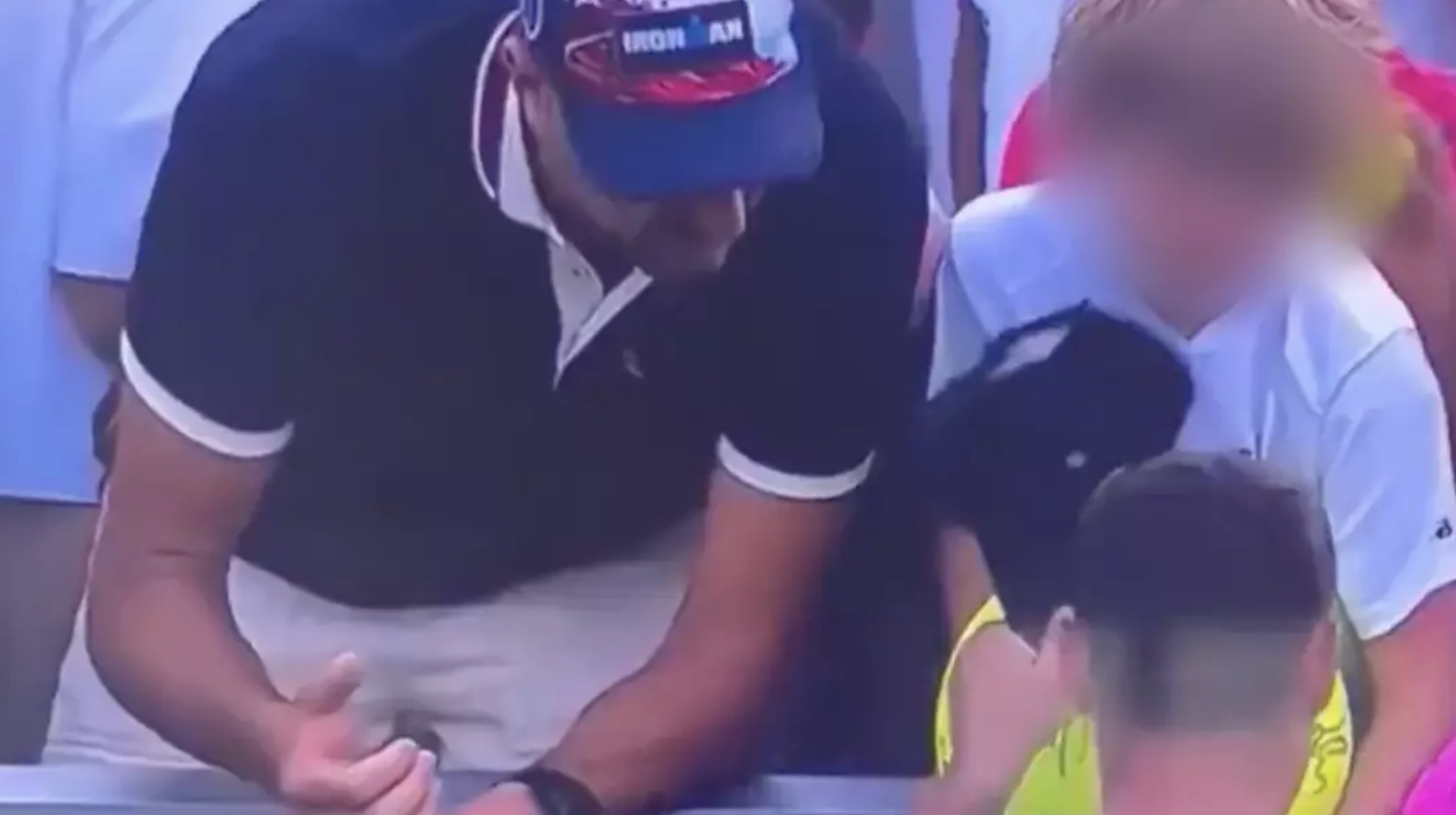
A heartwarming moment at the 2025 US Open turned sour after a grown man snatched a souvenir cap intended for a young boy, sparking widespread outrage online. The incident occurred on Court 11 shortly after Polish tennis player Kamil Majchrzak secured a stunning five-set victory over Russia’s Karen Khachanov — the greatest win of his career to date.
Riding high on emotion, Majchrzak approached the stands to thank his supporters and hand out autographs. As a gesture of goodwill, he removed his Asics-branded cap and leaned over to gift it to a young fan. However, just as the cap was about to reach the child, an adult spectator intervened, grabbing the item before the boy could take it. The child’s visible disappointment and audible protest were captured on live broadcast and quickly spread across social media.
Despite the boy’s distress, the man kept the cap and ignored the situation entirely. The video, which went viral on platform X (formerly Twitter), drew fierce criticism, with users condemning the act as “disgusting” and labelling the man a “bully”. Many questioned the behaviour of adults who compete with children for memorabilia, calling it inappropriate and selfish.
Majchrzak, unaware of the incident at the time, later addressed it on Instagram. He explained he hadn’t realised the cap hadn’t reached the intended recipient and expressed his willingness to send more, joking that Asics kept him well-stocked. He appealed to his followers to help identify the boy and asked the child’s parents to contact him directly.
Social media users, often dubbed “internet detectives”, quickly mobilised. Within a short time, the boy’s family was located. Majchrzak confirmed the successful reunion via another post, expressing gratitude for the online community’s swift action and celebrating the positive resolution.
The US Open, one of the sport’s most prestigious tournaments, continues through to 7 September. While the competition remains fierce on the court, this incident has highlighted the power of digital communities to right a wrong — and the importance of basic decency in public spaces.

